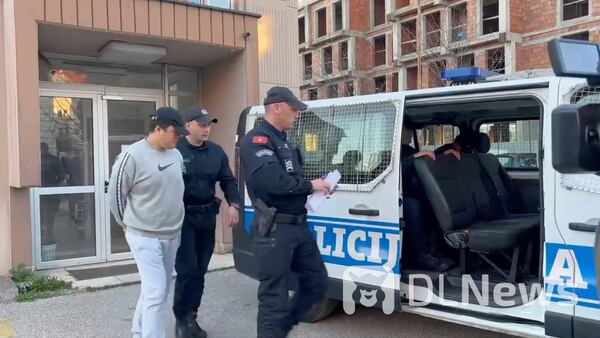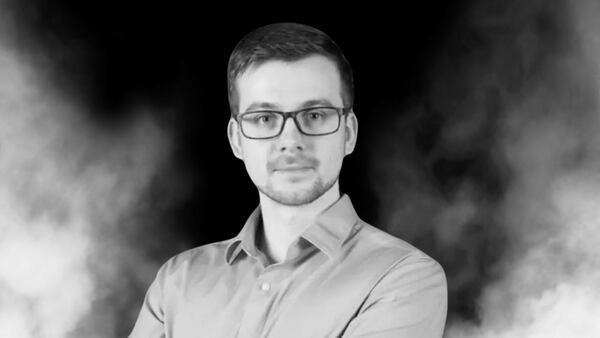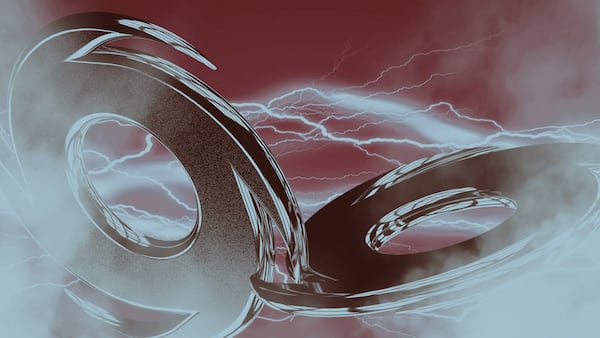- Chainalysis will have to answer questions about its Tornado Cash data ahead of the trial against developer Alexey Pertsev
- A request to probe talks between Dutch and US authorities was declined by the court
- Pertsev faces money-laundering charges in the city of Den Bosch
Tornado Cash developer Alexey Pertsev faced a Dutch hearing today, where his trial for money laundering was pushed into at least next year.
But Keith Cheng, Pertsev’s lawyer, said one outcome of the hearing was a win.
The foundations for Dutch prosecutors’ case against Pertsev is based on data from blockchain analytics firm Chainalysis. The Dutch court approved today Cheng’s request to dig deeper into that data, enabling the defence team to ask Chainalysis for information about how it reached its conclusions.
Chainalysis will now have to answer questions about how it crunched its numbers relating to Tornado Cash.
It’s a window of hope for Pertsev’s defence, Cheng said.
“The main point was the data from Chainalysis, so I’m happy with that,” he told DL News outside the courtroom on Wednesday.
Dutch authorities have accused Pertsev of laundering money through Tornado Cash, which obscures crypto transaction histories. The court, in the city of Den Bosch where the case against Pertsev is starting to take shape, said that Pertsev will not stand trial to face the charges until 2024, due to a backlog clogging up the court’s schedule.
NOW READ: ‘Not over yet’: Tornado Cash attack rages on with $1m in jeopardy
Through the judge, Cheng can start asking Chainalysis several rounds of questions, if needed. Should he need more clarity, a representative may be asked to speak at the next court session in September.
“Thanks for reaching out but we have nothing to share here,” a Chainalysis spokesperson told DL News.
‘If that’s the basis of why they arrested my client, I definitely want to know what was provided by the US and talked about before’
— Keith Cheng
Cheng had less luck with his request to find out more about the communication between US agencies — like the FBI, the IRS Criminal Investigation and the Department of Justice — and Dutch authorities surrounding Pertsev’s arrest in August, days after the US Treasury sanctioned the decentralised crypto mixer.
The court documents did not reveal any details on what was discussed and when.
“If that’s the basis of why they arrested my client, I definitely want to know what was provided by the US and talked about before,” Cheng said.
The court declined the lawyer’s request to get hands on more details about the US-Dutch dialogue, but the defence will still be able to make a related request by 30 August.
NOW READ: Tornado Cash developer’s trial pushed to next year as ‘worried’ tech contributors seek clarity
Cheng’s main job now is to “follow the crypto,” as prosecutors have not sufficiently shown an incriminating flow of funds on Tornado Cash, he said. Another request the court approved was for The Fiscal Information and Investigation Service to map the hacks on the Tornado Cash network.
“Then we can see if my client knew or should have known about it,” Cheng said. “But at this moment, we don’t even know what the route the crypto from the hack took.”
Pertsev, who was released from his eight-month detention in April, will be freed from his house arrest while he continues wearing GPS-monitoring. At least, until his next court session scheduled for 13 September.
Instead, he will be prohibited from approaching Dutch borders and airports. The fact that he lives notably close to Amsterdam’s airport will be taken into account.
NOW READ: Code is not speech: ‘Wild theories’ won’t protect DeFi developer Alexey Pertsev
The charges against Tornado Cash created a “chilling effect” in the open source community around the world, Electronic Frontiers Foundation executive director Cindy Cohn told DL News.
She said she is frustrated over prosecutors’ failure to provide “clarity to the millions of people around the world who are worried that they might actually be at risk” because of their contribution to other open-source projects.
For many privacy advocates, the case represents a breach of freedom of expression in the form of code. This sparks a debate on how software developers may be liable if their code is used for malicious intent.
Do you have a tip about Tornado Cash, regulation or another story? Reach out to me at inbar@dlnews.com.



